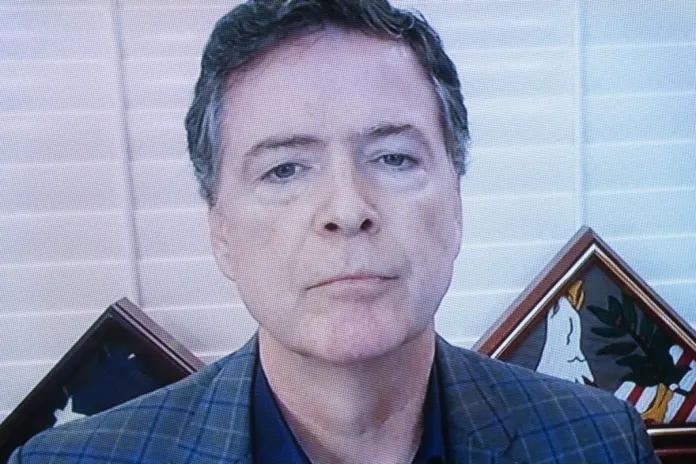


A federal judge in Virginia sided with James Comey in an early procedural victory for the former FBI director, who is facing charges for false statements and obstruction. The judge rejected federal prosecutors’ effort to impose broad restrictions on the evidence Comey can access ahead of trial.
U.S. District Judge Michael Nachmanoff denied the Justice Department’s request for a sweeping protective order, concluding that it would have “unnecessarily hindered and delayed” Comey’s ability to prepare his defense, according to an order written Monday and published Tuesday morning. Nachmanoff, an appointee of former President Joe Biden, acknowledged the government’s concerns about leaks and sensitive materials but ruled that the proposed order “tipped the balance too far” against the defendant’s right to a fair trial.
Recommended Stories
- Man who firebombed Josh Shapiro's residence pleads guilty
- Judge sets Comey evidence deadline as DOJ seeks to limit access
- How four courts ruled different ways on Trump's National Guard deployments

“The Court recognizes and shares the government’s concern regarding the possibility of inappropriate dissemination of sensitive information,” Nachmanoff wrote, “but it also finds that the government’s proposal does not sufficiently define the information constituting ‘Protected Material,’ thereby making it overbroad.”
In siding with Comey, the judge cited a nearly identical dispute from the 2018 prosecution of former Trump campaign chairman Paul Manafort, when U.S. District Judge T.S. Ellis III rejected an overbroad protective order sought by then-special counsel Robert Mueller’s team. Ellis warned at the time that prosecutors were attempting to cast “an unnecessarily broad cloak of secrecy” over the case — language Nachmanoff echoed in Monday’s ruling.
Comey’s attorneys, Patrick Fitzgerald and Jessica Carmichael, argued that the Justice Department’s proposed order covered “almost all of discovery,” even though their client “served at the highest levels of government and was entrusted with some of the nation’s most sensitive information.” They said the restrictions would have placed Comey at a “severe and unnecessary disadvantage.”
Prosecutors led by U.S. Attorney Lindsey Halligan, joined by federal attorneys Tyler Lemons and Gabriel Díaz, countered that the high-profile nature of the case and Comey’s prior public comments warranted additional safeguards. They noted that Comey has already spoken out about his indictment online, including with a recent Substack video in which he claimed his family was paying the “costs” of standing up to President Donald Trump.
Both sides agreed that ensuring an impartial jury is crucial, but Nachmanoff emphasized that the government’s proposal “was insufficiently specific and excessively broad,” echoing Ellis’s 2018 warning.
Comey, who led the FBI from 2013 to 2017, faces two felony counts related to his 2020 Senate testimony, including one for allegedly lying to Congress about authorizing a subordinate to speak with reporters and another for obstructing a congressional proceeding. He pleaded not guilty last week in federal court in Alexandria, Virginia.
Following the ruling, Comey filed a notice of intent to challenge the legality of Halligan’s appointment, arguing that her installation as interim U.S. attorney in the Eastern District of Virginia was “unlawful” after her predecessor, Erik Siebert, resigned from the post last month under pressure from the Trump administration. Comey plans to make the request on Monday.
JUDGE SETS COMEY EVIDENCE DEADLINE AS DOJ SEEKS TO LIMIT ACCESS
Comey’s filing pointed to recent judicial findings in Nevada and New Jersey that invalidated similar Trump appointments, including an August ruling that Alina Habba had been unlawfully serving as U.S. attorney in the Garden State.
An out-of-district federal judge will be assigned to decide that motion, which could determine whether Halligan’s office is permitted to continue prosecuting the case. Comey is also expected to seek dismissal of his charges on claims of selective and vindictive prosecution, arguing that the charges stem from political retribution rather than evidence-based law enforcement.
